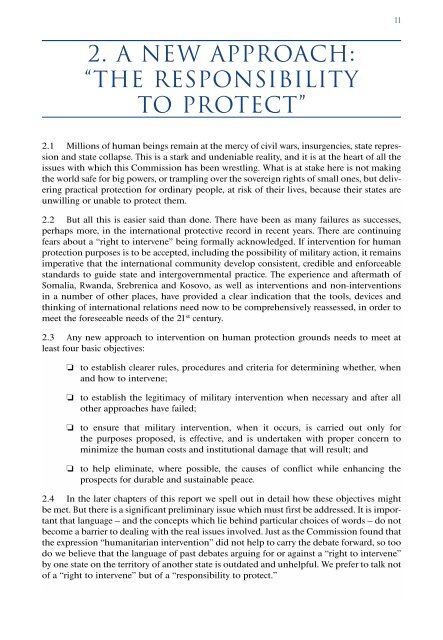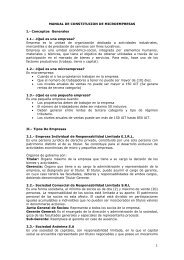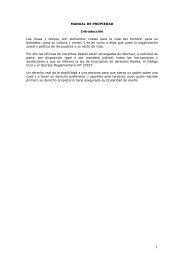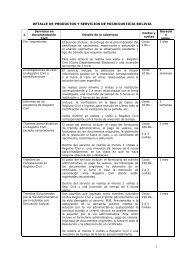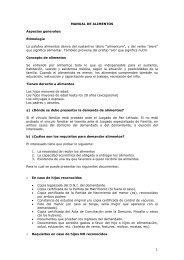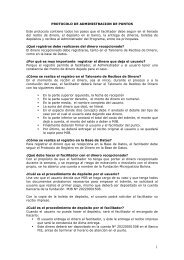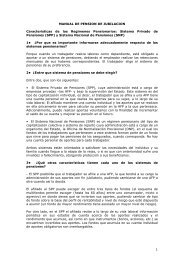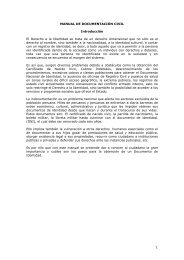ICISS report - International Coalition for the Responsibility to Protect
ICISS report - International Coalition for the Responsibility to Protect
ICISS report - International Coalition for the Responsibility to Protect
Create successful ePaper yourself
Turn your PDF publications into a flip-book with our unique Google optimized e-Paper software.
11<br />
2. A NEW APPROACH:<br />
“THE RESPONSIBILITY<br />
TO PROTECT”<br />
2.1 Millions of human beings remain at <strong>the</strong> mercy of civil wars, insurgencies, state repression<br />
and state collapse. This is a stark and undeniable reality, and it is at <strong>the</strong> heart of all <strong>the</strong><br />
issues with which this Commission has been wrestling. What is at stake here is not making<br />
<strong>the</strong> world safe <strong>for</strong> big powers, or trampling over <strong>the</strong> sovereign rights of small ones, but delivering<br />
practical protection <strong>for</strong> ordinary people, at risk of <strong>the</strong>ir lives, because <strong>the</strong>ir states are<br />
unwilling or unable <strong>to</strong> protect <strong>the</strong>m.<br />
2.2 But all this is easier said than done. There have been as many failures as successes,<br />
perhaps more, in <strong>the</strong> international protective record in recent years. There are continuing<br />
fears about a “right <strong>to</strong> intervene” being <strong>for</strong>mally acknowledged. If intervention <strong>for</strong> human<br />
protection purposes is <strong>to</strong> be accepted, including <strong>the</strong> possibility of military action, it remains<br />
imperative that <strong>the</strong> international community develop consistent, credible and en<strong>for</strong>ceable<br />
standards <strong>to</strong> guide state and intergovernmental practice. The experience and aftermath of<br />
Somalia, Rwanda, Srebrenica and Kosovo, as well as interventions and non-interventions<br />
in a number of o<strong>the</strong>r places, have provided a clear indication that <strong>the</strong> <strong>to</strong>ols, devices and<br />
thinking of international relations need now <strong>to</strong> be comprehensively reassessed, in order <strong>to</strong><br />
meet <strong>the</strong> <strong>for</strong>eseeable needs of <strong>the</strong> 21 st century.<br />
2.3 Any new approach <strong>to</strong> intervention on human protection grounds needs <strong>to</strong> meet at<br />
least four basic objectives:<br />
❏ <strong>to</strong> establish clearer rules, procedures and criteria <strong>for</strong> determining whe<strong>the</strong>r, when<br />
and how <strong>to</strong> intervene;<br />
❏ <strong>to</strong> establish <strong>the</strong> legitimacy of military intervention when necessary and after all<br />
o<strong>the</strong>r approaches have failed;<br />
❏ <strong>to</strong> ensure that military intervention, when it occurs, is carried out only <strong>for</strong><br />
<strong>the</strong> purposes proposed, is effective, and is undertaken with proper concern <strong>to</strong><br />
minimize <strong>the</strong> human costs and institutional damage that will result; and<br />
❏ <strong>to</strong> help eliminate, where possible, <strong>the</strong> causes of conflict while enhancing <strong>the</strong><br />
prospects <strong>for</strong> durable and sustainable peace.<br />
2.4 In <strong>the</strong> later chapters of this <strong>report</strong> we spell out in detail how <strong>the</strong>se objectives might<br />
be met. But <strong>the</strong>re is a significant preliminary issue which must first be addressed. It is important<br />
that language – and <strong>the</strong> concepts which lie behind particular choices of words – do not<br />
become a barrier <strong>to</strong> dealing with <strong>the</strong> real issues involved. Just as <strong>the</strong> Commission found that<br />
<strong>the</strong> expression “humanitarian intervention” did not help <strong>to</strong> carry <strong>the</strong> debate <strong>for</strong>ward, so <strong>to</strong>o<br />
do we believe that <strong>the</strong> language of past debates arguing <strong>for</strong> or against a “right <strong>to</strong> intervene”<br />
by one state on <strong>the</strong> terri<strong>to</strong>ry of ano<strong>the</strong>r state is outdated and unhelpful. We prefer <strong>to</strong> talk not<br />
of a “right <strong>to</strong> intervene” but of a “responsibility <strong>to</strong> protect.”


